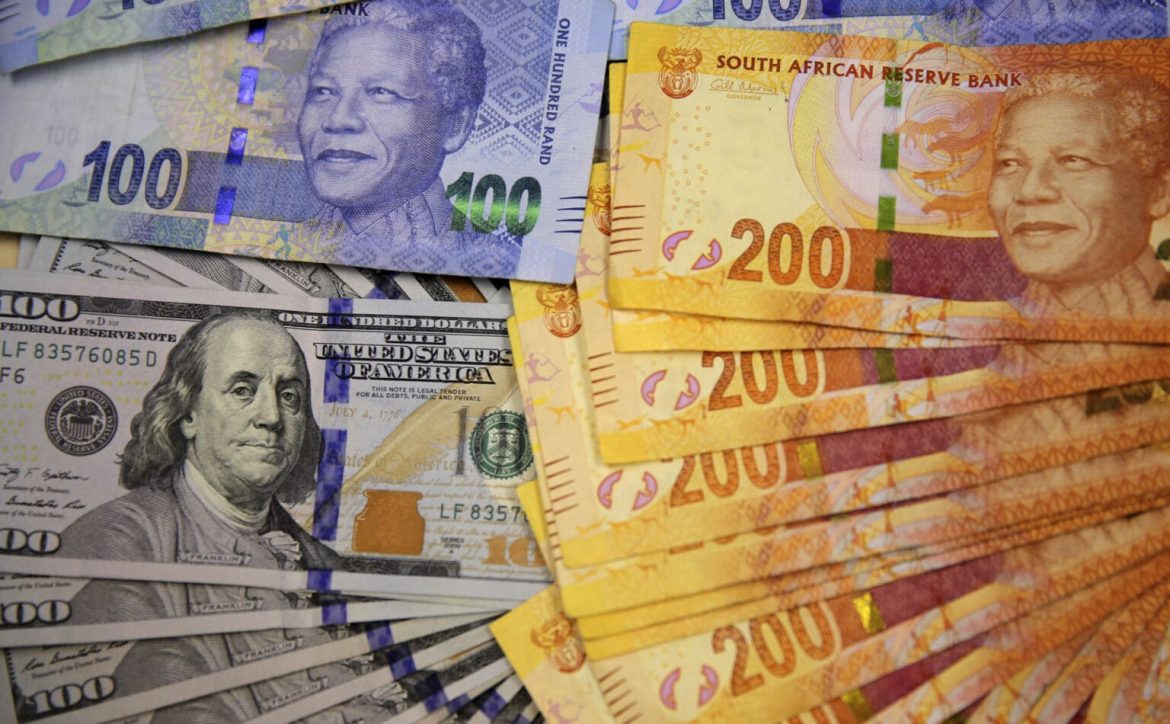South Africa’s rand made gains on Monday, strengthened by a surge in gold prices and growing optimism about a potential agreement between the country’s two largest political parties on the national budget.
By 0728 GMT, the rand was trading at 18.2375 to the U.S. dollar, reflecting an improvement of about 1.1% compared to its previous close. The currency had experienced volatile movements in recent days, primarily due to the deadlock in budget negotiations and concerns surrounding U.S. President Donald Trump’s tariff policies, which had put pressure on investor sentiment.
On Monday, gold prices hit a new all-time high, as investors sought safety amid fears of a global trade war and an economic slowdown in the United States, the world’s largest economy. Gold is traditionally seen as a “safe-haven” asset during times of uncertainty. South Africa, being one of the world’s leading producers of gold, often benefits from rising prices of the precious metal, which can support the rand and the country’s overall economy.
The focus in South Africa this week is on the political negotiations surrounding the national budget. Local news website News24 reported that the African National Congress (ANC), the ruling party, and the opposition Democratic Alliance (DA) were close to reaching a deal that would allow the passing of the national budget. However, BusinessDay, a prominent South African newspaper, said that talks were still deadlocked, and no agreement had been reached as of Monday morning.
The budget is crucial for South Africa’s economic planning, and the impasse between the ANC and DA has raised concerns about the country’s ability to effectively manage its finances. The outcome of the negotiations could have significant implications for investor confidence and the performance of the rand.
Meanwhile, on the stock market, the Johannesburg Stock Exchange (JSE) saw some losses. The Top-40 index, which tracks the performance of the country’s largest companies, was down by about 0.5% in early trading. This reflects broader market concerns, which were influenced by the political uncertainty surrounding the budget talks and the volatility in global markets.
In the bond market, South Africa’s benchmark 2030 government bond showed positive movement. Early in the trading session, the yield on the bond had fallen by 9.5 basis points to 9.06%. This decline in yield suggests that investors were somewhat optimistic about the outcome of the budget negotiations, despite the ongoing deadlock.
As the week progresses, market participants will be closely watching the developments between the ANC and DA, as well as the ongoing global economic concerns that continue to affect market sentiment. If an agreement on the budget is reached, it could provide some relief to the rand and signal that South Africa’s political parties are able to work together on critical issues. However, if the impasse continues, it could add more pressure on the currency and the country’s economic outlook.
